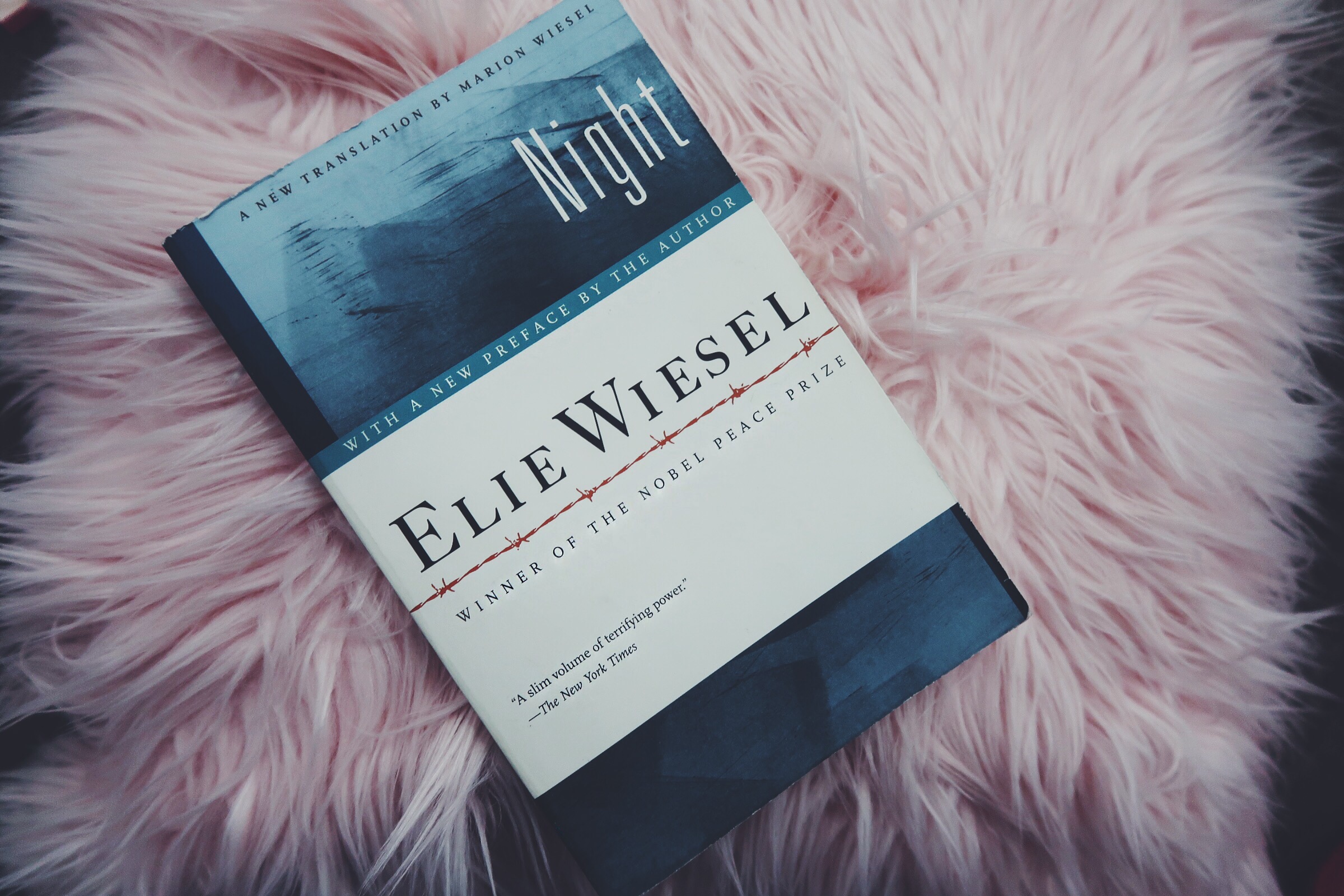Wole Soyinka’s Telephone Conversation has been widely misinterpreted—not in its central message but in the lines that make the message up.
When I was in high school, my teacher had once spoken about Wole Soyinka’s Telephone Conversation en passant, and from that time onward until recently when I was privileged to lay my hands on the work and do its analysis myself, I held the following notion about the poem:
Wole Soyinka traveled to study in England, and on getting there, he needed accommodation before gaining admission to continue his studies applying to Leeds University. For this, he phoned a landlady who turned out to be a racist. She was disgusted with him upon learning that the speaker was African.
She expressed her acrimony for the dark skin on the phone, but the poet would turn out to intimidate her with his intelligence. Along the line, the woman got so infuriated that she smashed her phone at the fact that a non-native speaker of her language was ready to teach her about it on the other side of the line. (Indeed, this is not only preposterous but also opprobrious.)
Now, many years after that memorable day in a literature class, I still remember—if not verbatim—all the ideas the teacher related to us about this outstanding piece. What I’m most glad about here is that the teacher, not knowing that one of us would be somewhere years later recalling the way he’d spoken about it, had not given off a false knowledge of this work.
“Is this black?”, my teacher said Wole Soyinka had asked pointing at his palm (but that isn’t exactly so). This and a few other things may just have been misattribution due to the life of time between the time my teacher studied the work and the time he was telling us about it or because he’s read several other works and has the tendency to confuse one for another… you know that sort of thing.
Starting from the paragraph that follows this, we shall start our analysis of this work, but you can be sure that my teacher’s discourse of the poem is nearly an accurate summary or decryptification of the work for anyone—even a layman.
Poem Rendition
The image above is the pictorial form of the poem Telephone Conversation. Click here for the text format.
Introduction to the poem
Telephone Conversation is a 1963 poem about racism—written some three years after the poet’s home country Nigeria gained her independence.
Nationalists in the country and other places in Africa already knew, by the time they were being colonized that, the pen is mightier than the sword. This ideology is evident in the fact that many expressed their thoughts in white and black through the most common forms: essays, poems, and articles.
It is important to also take into consideration that literature is usually greatly influenced by spatial and temporal factors. The literary works of each era discuss or very likely discuss the problems inherent in such a time period.
As to the background knowledge of this poem, Wole Soyinka’s prime years grappled with the problems of discrimination and all the effects of colonialization—for it was during the 1940s and 1960s around which time we received this work.
Wole Soyinka has long been known to combine his artistry with his activism. He is one of those who were working actively towards the independence of Nigeria until the country gained her freedom in 1960. Some of the most significant ways in which the poet has been doing his activism is through writing.
Also, he co-founded the National Association of Seadogs—a group that is said to be in the interest of a just society. They are self-acclaimed humanists, the same way Wole Soyinka himself has always addressed himself as a humanist…
He doesn’t condemn the practice of any religion, rather he believes in their co-existence, with his home accommodating people of every religion and a room for their practices. Just he practices the religion of the Oritsa himself.
People practicing this in Nigeria are in other words known as the traditionalists. What is probable is that Wole Soyinka is so radical and believes more in the power of typical Nigeria than the alien practices introduced to the country.
Being a humanist himself as all evidence has shown, Wole Soyinka’s Telephone Conversation and works alike zero in on the challenges of society; including but not limited to discrimination.
Setting
The setting of this poem is stated implicitly. But everyone who sees the poet beyond the poem and pays attention to the details of the lines should be able to deduce that the poem was set in England sometime in 1963 (or perhaps originally written in 1962 as some sources claim).
The setting must have been in England because first there are claims that the work is non-fictional and of course, Wole Soyinka did navigate his way to England where he attended Leeds University in furtherance of his education some years before the publication of this work.
More like it, the poet mentioned some artifices and devices that are peculiar to England. “Omnibus squelching tar” and “Pillar box” in line 13 are some instances noticed.
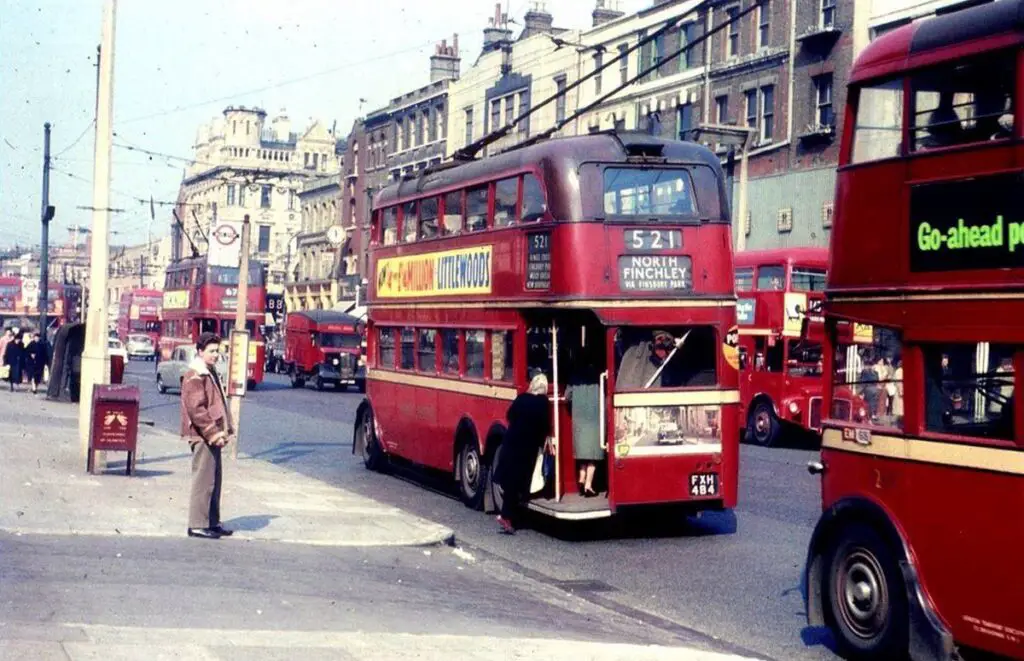
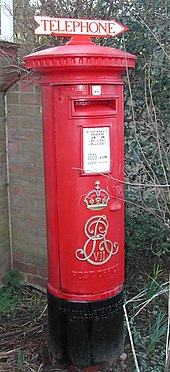
Themes of the poem
This work especially focuses on two themes and they are the themes of racism and the complexity of Identity.
The Complexity of Identity
More than the fact that people are like books that should not be judged by their covers, this work has shown us that telling white people from people of color may not be exactly logical since people’s body tones cannot completely be of a single color. The poet has highlighted how that the black is not black altogether.
We also saw this complexity in the landlady’s inability to tell between a black and a white speaker through their voices.
Racism
The discrimination that people of color suffer from is the central focus of this work among other social vices that can be equally dehumanizing.
The ironclad interest of the poet in hammering this theme is evident in the capitalization of every word that directly impacts the message.
Tone and Diction
While Wole Soyinka is notable for his use of difficult diction, he used a simple language form in expressing the account he shares in Telephone Conversation.
The work is especially more relatable because it doesn’t follow the traditional structure of poetry. We know about such structures as prose-poetry but this qualifies to be a play-poetry. There isn’t much of this structure in the literary world, but its effect goes down well.
For being dialogical, the poem is more understandable and consequently simpler to decrypt than most classical works of poetry.
To wrap up the discourse of diction, the poem doesn’t use many codes or symbolism. Only the colours in the work help reach this effect and it is in favor of our interpretation of the lines.
As to meter and rhyme scheme, the poem being a single verse of 35 lines has no specific meter or rhyme. This helps the poet make the poem so unpredictable.
Tone
The tone of the poem is playful and satirical. “Rearing on the thunderclap” suggests that the landlady slammed her receiver. This shows the rate of her rage—the one that, ironically, she was supposed to notice in the speaker on the other hand.
It implies that despite feeling humiliated and helpless on his race and skin which he cannot choose for himself, the African man was able to maintain equanimity while the Caucasian couldn’t manage the disillusionment before her.
Satirical, playful, and unwittingly ironic the tone is—should you fail to see the irony that belies in satire.
Literary Device
The appropriate or strategic use of literary or poetic devices makes every good poem one. And Wole Soyinka’s Telephone Conversation is no exception to that. Some of the following are the most noticeable devices that made the poem what it is.
- Imagery
Not just to tell but also to show that the landlady is from higher strata in society, the poet describes her mouth as “lipstick coated” and he made us see her with a “gold rolled cigarette holder piped”.
- Metaphor
In such lines as “Silences for Spectroscopic”, the poet makes a direct comparison of the human mind and a device that identifies colors. His use of metaphor also contributed to the imagery.
- Hyperbole and Litotes
“West African sepia” is an exaggeration with some elements of synecdoche too, maybe not deliberate, though. It can be viewed as such other phrases as “West African giant” and so on.
Sepia is a color and it is enough to do the job of the poet’s skin tone without carrying the entire West Africa alongside.
Also, we saw an understatement (Litotes) at the beginning of the poem: “Location indifferent”. This doesn’t really make it sound like anyone at all can rent the apartment. Or that the poetic persona is suitable for accommodation at the location.
- Irony
The work is dominated by this poetic technique but it is especially sharp and noticeable at the point where after having been convinced that he was suitable to take the vacant accommodation, it was confirmed that his color was yet a barrier. This is both hypocritical—on the part of the landlady and generally ironical.
You see, logic suspects that the poet must have seen in the ad that the apartment is open to people from all walks of life.
Further, there is a bit of repetition: alliteration and assonance, as found in the lines: “clinical, crushing” and /ʌ/ in “Button B. Button A” respectively. There are quite a few more instances of the use of repetition in the poem.
Similarly, enjambment (the technique of running words offline) is prominent in the poem.
A Summary of Wole Soyinka’s Telephone Conversation
The poem opened in good faith with the poetic persona thinking he had found an offer he could hop on except that being well-appraised of the setting, he knew of the prominence of the vice of racism; discrimination against certain skin tones despite being abrogated by law— because in fact there has been campaign against this practice since 1945, which saw a favorable consideration in 1948 when the Nationality Act granted every resident of the country Commonwealth citizenship.
The persona admitted to the lady in possession of the property he wished to rent over the telephone that he is African— presumably waiting to hear that color isn’t a criterion.
“HOW DARK?”, Unfortunately, he was asked about the tone of his skin—a question that would pass the central message of the poem.
“I had not misheard”. Dismayed as he was, the African man managed to keep up with the conversation until the White landlady was mesmerized by his intellect. This disillusionment got the best of her and she slammed her receiver so that the persona would hear a thunderclap-like sound at her end.
It should be noted that this summary is as the poem and scholars who’ve analyzed earlier suggest.
Analysis of Wole Soyinka’s Telephone Conversation
Let’s pass some comments on the existing analysis of this work.
With the use of satire (having some elements of irony inherent in it), the poet critiques racism, revealing how laughable even those who think themselves special can actually be.
Contrary to the view of some analyses that suggest that the poet wondered which of the options “Button B” or “Button A” to press the telephone, Wole Soyinka only used those words to pull us back out of the distant picture of the conversation that was going on over the telephone—so that we can share with him how he immediately felt in his immediate surrounding.
“Button B” or “Button A” was likened to the options available on the telephone: to choose between language over an automated call—for the landlady’s alternatives gave him that impression.
As to returning to his immediate world, the poet also talked about “Public hide and speak”, which is an appropriate way to describe the red booth he was in.
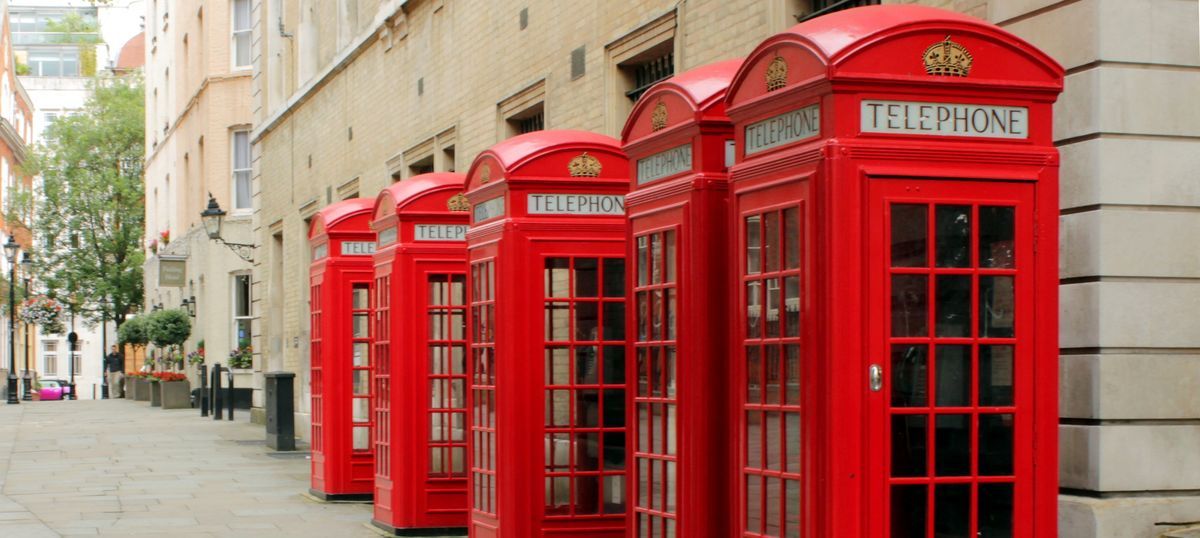
Everything that followed the “Button” added to the imagery and left us with a crisp view of how the poetic persona might have felt. Having to choose between his fate and that which isn’t there was enough to make him occupy his mind with the thought of how other Europeans around him might perceive him.
Further, the poet didn’t explicitly make any effort to taint the personage of the landlady. He described the lady as one who’s of “good-breading”, one reason we suspect she was careful enough not to use the blunt or harsh word “Black” but rather dark and light. This act shows that:
(1) the landlady is hypocritical, advertising a vacant apartment that can accommodate people indifferent to their skin even while the hate of dark people lurks in her heart. We suspect that she wasn’t expecting an African to jump on the offer. What is also probable is that she couldn’t help but put her ad in this way since a bill for equality had been passed before this time.
(2) the landlady might simply be so educated that she feels the necessity to sound civil when putting an ad out despite the mentality that’s in the confines of her mind.
About the Poet
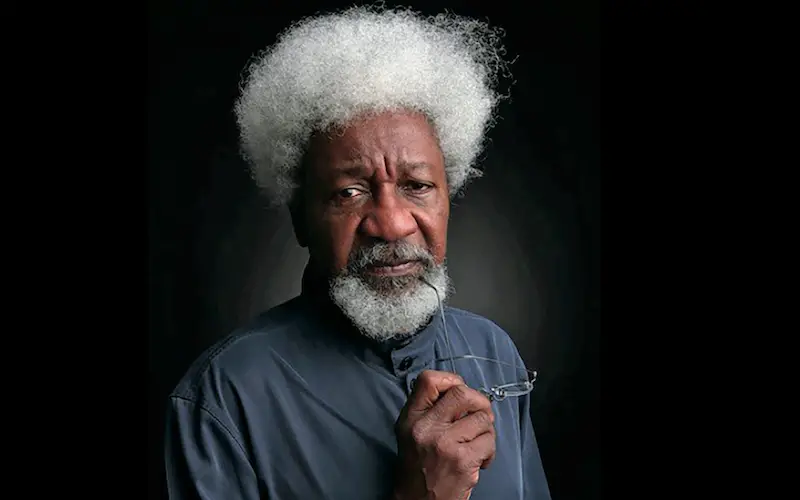
The poet Wole Soyinka was born on July 13, 1934, in Abeokuta, somewhere in Nigeria. He answers Akinwande Oluwole Soyinka in full. The poet is versed in several other forms of writing that he is in fact a prominent Nigerian playwright, novelist, and essayist who has written tons of literary works and earned several awards including the 1986 Nobel Prize in Literature—which he turned out to be the first Black writer to get.
Read Also: Who was the first gothic poet?
Soyinka grew up as a curious child who didn’t plan to write professionally. He read whatever was available to be read and wrote merely to pass some comments he had on the social and political issues his people endured.
At the time he started this, his works gained attention and he enjoyed the optimal encouragement they deserved, except that his works also sent him to prison, but he had an urge from within to continue his activism in black and white, so he wouldn’t stop writing until it was part of him.
Obsessed with giving and taking, Wole Soyinka first studied at the University of Ibadan in Nigeria then went to Leeds in England in furtherance of his education—he wrote alongside schooling and after his Master’s degree, he wrote some more in the theatre until he also got the chance to lecture in his area of interest.
Since then, Wole Soyinka has taught at several institutions in his home country and overseas. He is now an Emeritus professor—for being a retired lecturer—but he still writes and lectures occasionally, basically at seminars, based on appointment.
We didn’t pass any comment on his marriage life because it feels complicated since he was married to three or so women: a white lady—a union that didn’t last before they called for divorce, his first Nigerian wife—who had died before he moved on to the next and maybe that next was before his current wife or it is the current wife herself, we are not sure. But we do know that he is about 30 years older than his current wife, Mrs Soyinka Folakemi. She is a Nigerian like him.
Share
